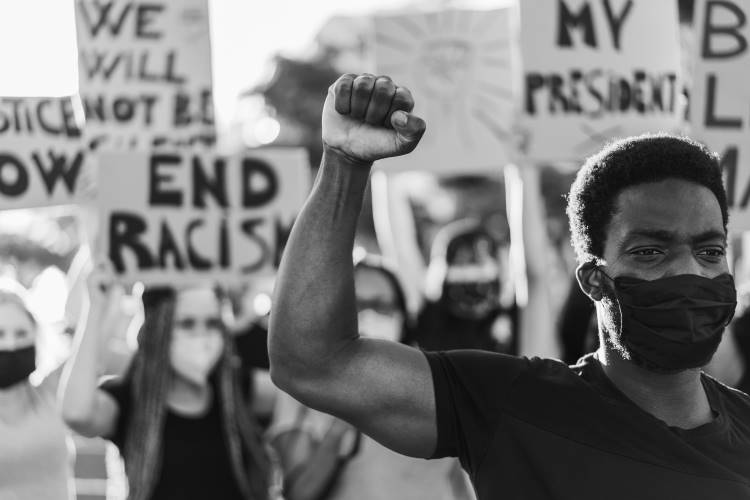
George Floyd died at the hands of police officers just over two month ago. Breonna Taylor was shot and killed in March. Justice in each case moves slowly, if at all.
Significant racial progress, I say out loud during a recent newscast, is taking a long, long time.
My son, who is Black, sits next to me as I lament. He sighs and looks up from his phone, “Yeah, actually I had forgotten about the Black Lives Matter stuff until I saw the NBA and MLB players kneeling on Opening Day.”
His gaze retreats back to his phone.
I do not reply. I just sit, quietly frustrated.
His comment made me think of the dogged, lengthy efforts of past Civil Rights titans, like The Rev. Dr. Martin Luther King Jr. and John Lewis, making the mission of racial equality their life’s work. I then thought of the protest my son attended with my wife after Floyd’s death, and the way that day make him stop and think about the need for systematic change.
A few months later, though, he’d lost that feeling of urgency.
I suddenly find myself wondering, “Does this generation of children have the same grit to carry this movement onward?”
With protesters continuing to take to the streets in several American streets, there is no question the Black Live Matter movement has feverish support from adults. These rallies, though, have gotten fringier, less kid-friendly and downright nasty in places like Portland or Seattle where government-affiliated troops routinely use force and tear gas to disperse crowds.
I am selfishly thankful my son is not subject to that sort of chaos. But is familiarity with such unrest, though, necessary to garner the type of passion that success in this struggle will require? As parents, our mission is to protect our kids. My children’s relative lack of bumps in the road to this point could be construed as modest progress.
I tend to harp on to my son about him having no limits, that the only barriers to his success will be those constraints he places on himself. I have drilled that mantra into him from his earliest ages and, I think, he believes it. But I wonder if because he has been taught that nothing is out of reach regardless of his skin color is part of the reason why the urgency of Black Lives Matter has waned in him.
Complicating this issue with young people and persistence is that many children like mine do not have to wait for anything – not for food, not for a text back, not for Instagram likes, not for commercial breaks. Kids, if made to wait these days, tend to stop, quit, complain or just move on.
The grit required to rid the world of racism will be immense. While no one wants to hear phrases like, “it will take time” or “justice will come” or “progress is slow” about today’s racial climate, they have all been proven to be real. In the world of apps and instant gratification our children have been raised in, have we parents adequately allowed them to grind through a hard task for long periods of time for a coveted outcome that made the dogged effort worth it?
I dread that these realities are inciting passionate adults at the fringe and turning off children like my son who are maybe not equipped for the long tussle required for monumental change. Parents may be well-meaning in shielding their children from the racism’s ugly stain, but in protecting our children I can’t help but think we have not done a good job of explaining that other families are not so fortunate. My son’s indifference to the continued fight for Black Lives to Matter, I think, is proof.
So now, months removed from the awful imaginary of George Floyd’s death, the Black Lives Matter movement may open our eyes to other ignorances like our children’s lack of access to plight, to fortitude, to communities that look starkly different than our own, and to the concept of persevering for a cause that will take great perseverance to achieve.
My son may lack grit. I need to do a better job of displaying its importance to him because grit is required for Black lives, like my son’s, to matter.
Photo: © DisobeyArt / Adobe Stock.

Leave a Reply